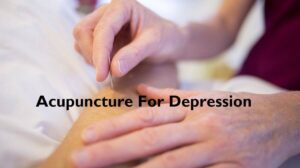
The No. 1 cause of depression — everywhere – A recent study revealed that people who have a certain childhood history are at higher risk of the condition.
Everyone can experience depression at any age. What caused it is not yet known for sure, but mental health experts worldwide agree that there are a number of risk factors for the most common causes of depression. Some of them can’t even always be prevented.
According to a group of researchers from around the world (including those from London and various regions in Spain), people who have suffered from abuse during their childhood are more likely to be diagnosed with clinical depression — and even more so if they are genetically predisposed to the condition.
Over a three-year period, scientists analyzed patients from 41 different health clinics in seven Spanish provinces who ranged in age from 18 to 75.
And here’s what they discovered through genetic testing: The participants who were shown to have a limited gene function implied in both BDNF (brain-derived neurotrophic factor, a protein-coding gene) and serotonin transmission were extra-sensitive to the damaging effects of child abuse — whether the abuse was psychological, physical or se**xual.
In other words, this particular lack of gene activity mixed with an abusive history can result in an increased risk of suffering from depression.
Blanca Gutiérrez, a professor in the psychiatry department at the University of Granada and the lead coordinator of this study, says that these findings — which were recently published in the Journal of Psychiatry and Neuroscience — are significant in terms of treatment.
The No. 1 cause of depression
The exact cause of depression is still unknown, but the condition is thought to be related to genetic factors, chemicals in the brain, and hormones. Depression can also strike all age ranges. However, it is more commonly experienced by older persons.
There are several factors that can also trigger the onset of depression, including:
The No. 1 Cause of Depression #1: Genetic factors.
Having a parent or sibling with depression can increase a person’s risk of also experiencing depression.
The No. 1 Cause of Depression #2: Biological factors.
Depression can occur due to insufficient serotonin levels in the brain. The condition is known as clinical depression.
The No. 1 Cause of Depression #3: Biochemistry
Chemical differences in the brain can affect depression in sufferers. This is related to the discovery of different conditions in the brains of people who have depression.
For example, a smaller part of the hippocampus. The hippocampus is a small part of the brain that is vital for memory storage. The hippocampus has fewer serotonin receptors. While serotonin works in managing mood.
Although it is considered to affect the onset of depression, a person cannot be diagnosed with depression just because of one thing. Depression is a complex disorder with a variety of causes.
#4. The gender of the woman.
Women are twice as likely to get depressed due to hormonal changes that occur during their lives. Such as menstruation (PMDD), pregnancy, childbirth (postpartum depression), and perimenopause. Usually, the risk of depression in women will decrease after menopause.
#5. Poor diet.
Deficiency of certain vitamins and minerals can trigger depressive symptoms.
#6. Chronic physical illness.
Have chronic or serious diseases, for example, after suffering from cancer, stroke, or HIV/AIDS.
#7. Traumatic events or mental distress
Experiencing traumatic events or mental distress, such as torture or abuse, the death of a nearby person, or economic hardship.
#8. Alco**hol and drug dependence
Alco**hol and drug dependence, for example, while trying to escape trouble.
#9. Severe and chronic stress.
Researchers suspect persistently high levels of the hormone cortisol can suppress serotonin levels and eventually trigger depressive symptoms.
#10. Bursting emotions.
Holding on to emotions after losing a loved one or being betrayed can make a person depressed.
#11. Certain personality
Having a certain personality, such as feeling inferior, too harsh in self-judging, pessimistic, or too dependent on others
#12. History of mental disorders
Have a history of mental disorders, such as anxiety disorders or eating disorders.
#13. Certain medications
Consumption of certain medications, such as sleeping pills or medications for hypertension
#14. Environmental factors
Environmental factors, such as the work environment. Stress in the office can sometimes also trigger the appearance of depression.
Read also:
Can Social Media Cause Depression? The Impact and 5 Symptoms
Thank you very much for reading The No. 1 cause of depression — everywhere, hope this information is useful.




